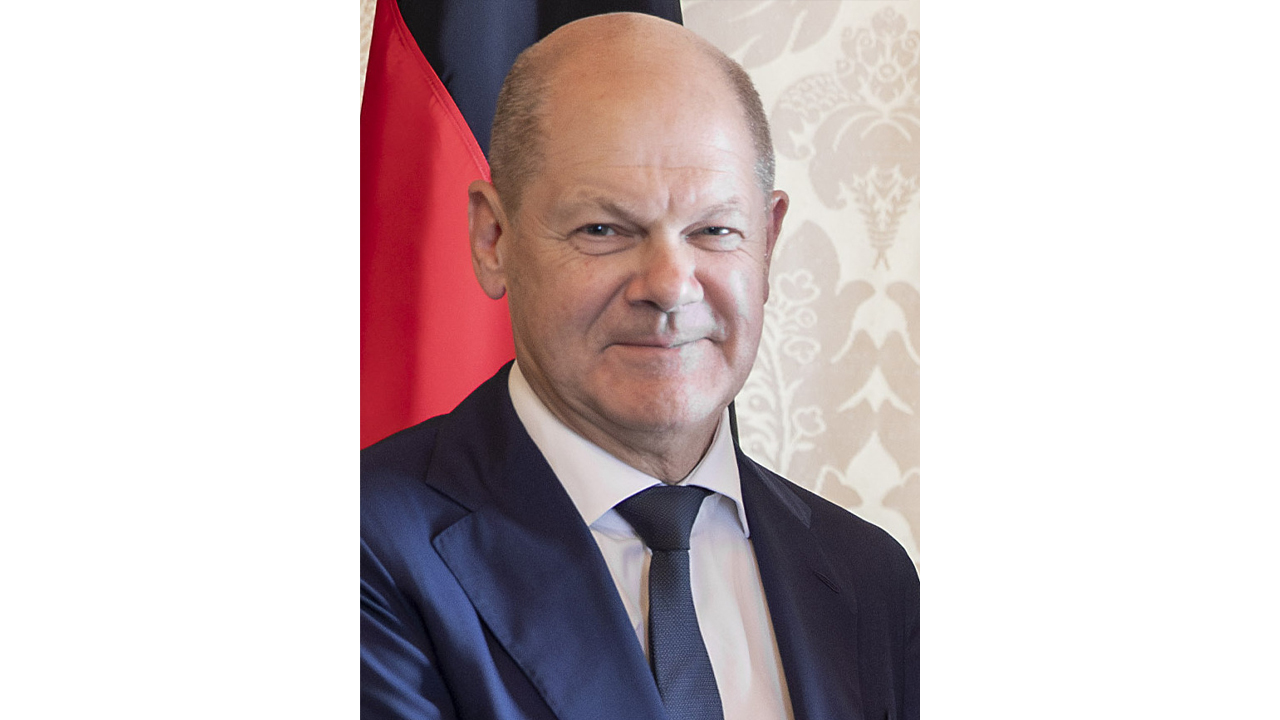West to use frozen Russian profits to arm Ukraine
He said the three leaders had agreed to never initiate an escalation with Russia, a possible way to downplay talk of sending Western ground troops to Ukraine, which has irked Germany. FRICTION BETWEEN SCHOLZ, MACRON The meeting of the so-called Weimar triangle - Germany, France and Poland - came after weeks of tensions, in particular between Scholz and Macron, that had alarmed officials in Kyiv and across the continent. A hastily-arranged summit in Paris last month had aimed to give fresh impetus to stagnating Western efforts to help Ukraine repel a full-scale Russian invasion that has entered its third year.

- Country:
- Germany
Ukraine's backers will use windfall profits on frozen Russian assets to finance arms purchases for Kyiv, German Chancellor Olaf Scholz said following a meeting with his French and Polish counterparts that aimed to show unity after weeks of friction. At a joint press conference in Berlin, Scholz, French President Emmanuel Macron and Polish Prime Minister Donald Tusk reaffirmed their support for a Ukraine, whose ammunition-starved troops face their toughest battles since the early days of Russia's invasion two years ago.
European support has become increasingly key as U.S. President Joe Biden has been unable to get a big Ukraine aid package through Congress, and much of his foreign policy energy is focused on the war in Gaza. Scholz said the leaders had agreed on the need to procure more weapons for Ukraine on the global market and to boost the production of military gear, including through cooperation with partners in Ukraine.
"We will use windfall profits from Russian assets frozen in Europe to financially support the purchase of weapons for Ukraine," Scholz said, backing a proposal made by European Commission President Ursula von der Leyen last month. Scholz said the leaders also agreed on the need for the Ukraine Defence Contact group to set up a coalition to provide long-distance artillery to Kyiv.
A proposal to set up a long-range missile coalition had already been agreed in Paris on Feb. 26. It was unclear whether Scholz' comments referred to this and how Germany, which has opposed sending its long-range Taurus missiles to Ukraine, would participate. Their defence ministers are set to meet on Monday at the Ramstein U.S. Air Base in Germany.
Macron reiterated his warning that it was not just Ukrainian but European security at stake. "We will do everything as necessary for as long as needed so that Russia cannot win this war," Macron said. "This determination is steadfast and implies our unity."
He added that the three leaders had agreed on the need to reinforce support for Moldova, which says Russia is trying to destabilize it through a "hybrid war". He said the three leaders had agreed to never initiate an escalation with Russia, a possible way to downplay talk of sending Western ground troops to Ukraine, which has irked Germany.
FRICTION BETWEEN SCHOLZ, MACRON The meeting of the so-called Weimar triangle - Germany, France and Poland - came after weeks of tensions, in particular between Scholz and Macron, that had alarmed officials in Kyiv and across the continent.
A hastily-arranged summit in Paris last month had aimed to give fresh impetus to stagnating Western efforts to help Ukraine repel a full-scale Russian invasion that has entered its third year. Instead, Macron's refusal to rule out deploying Western troops to Ukraine triggered a dressing down from Scholz.
Mykhailo Podolyak, a senior adviser to Ukrainian President Volodymyr Zelenskiy, told Reuters that "indecision and uncoordinated action" among Kyiv's allies was leading to "grave consequences". "Russia starts to get cocky and begins to believe that it can quantitatively squeeze Ukraine," he said. "Ukraine, in turn, is experiencing a severe shortage of specific resources, primarily shells, and is partially losing the initiative." NATO Secretary General Jens Stoltenberg issued a stark warning to members of the alliance on Thursday that Ukraine was running out of ammunition and they were not doing enough to help.
Tusk said the meeting on Friday showed "that some malicious rumours that there are differences between European capitals are very exaggerated". Tusk, who is seeking to revitalize the Weimar Triangle after eight years of nationalist rule in Warsaw, said Macron and Scholz had accepted his invitation to meet again in early summer to present their next joint plans.
Despite the show of unity, questions over weapons supplies and also whether Ukraine has the forces to face Russia in the long term have left some allies wavering in their support. "There are some who do not believe Ukraine will win the war now and think that Europe is not capable of getting the long-term support Ukraine needs and consider that the U.S. cannot be counted upon," said one European diplomat.
(This story has not been edited by Devdiscourse staff and is auto-generated from a syndicated feed.)
ALSO READ
Russian city calls for mass evacuations due to rapidly rising flood waters
China helping Russia expand its defence base amid Ukraine conflict: Report
Russian armoured assaults ramp up pressure on Ukraine's east, army chief says
Eight dead in Ukrainian shelling of Russia-controlled town, Russia-installed official says
Russia says it has taken village in Ukraine's Donetsk region










